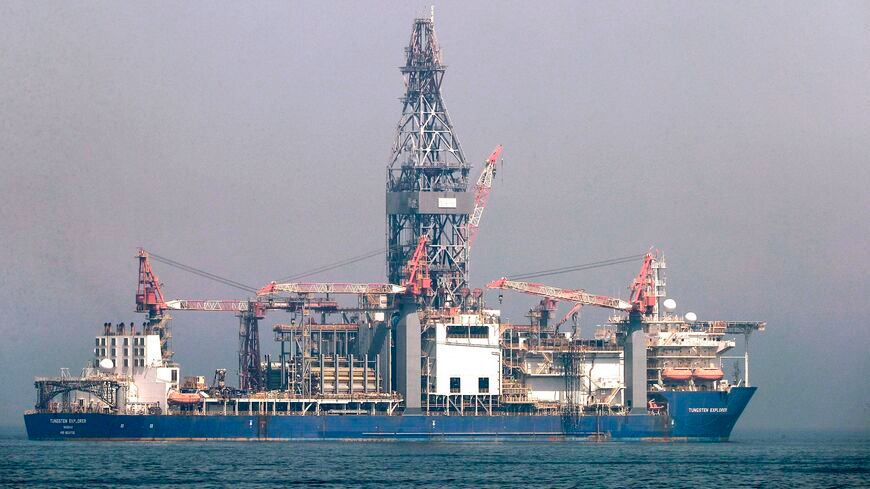
The three energy companies, which are already operating in another block in Lebanese waters in the Eastern Mediterranean, submitted their tenders for offshore exploration in blocks 8 and 10.
Lebanon’s Ministry of Energy and Water announced on Monday that a coalition of international oil giants applied for the second gas offshore licensing round in two blocks in Lebanese waters.
In a statement carried by the official National News Agency, the ministry said the consortium, comprising France’s TotalEnergies, Italy’s Eni and QatarEnergy, made its bidding at 3 p.m. on Monday, just one hour before the deadline for applications ended.
The ministry has extended the deadline to submit bids for exploration rights to blocks 8 and 10 in southern Lebanon several times since the tender was first launched in April 2019. More recently, the ministry extended the deadline from June 30 to Oct. 2 to give companies currently operating in Lebanese waters and others more time to prepare their tenders in order to ensure fair competition, according to a ministry statement.
The second licensing round comes after the same consortium began offshore exploration last month in block 9, also located in the south near the border with Israel. The consortium was awarded a contract for offshore exploration in 2018 after winning a tender during the first bidding round for gas exploration in blocks 9 and 4 in the Mediterranean Sea launched in 2017.
In April 2020, the companies stopped operations on block 4, north of Beirut, after they failed to find a commercially viable amount of gas to develop.
Meanwhile, operations on block 9 had been repeatedly postponed due to a dispute over maritime borders between Lebanon and Israel. However, the United States helped mediate a deal last October on the demarcation of the two countries’ maritime borders, paving the way for the start of drilling in the area.
Lebanon is betting on gas exploration to revive its struggling economy. The small Mediterranean country has been witnessing a crushing financial crisis since October 2019, while officials have failed to enact urgent reforms required by international donors to unlock much-needed aid.
There is still no confirmed gas quantity in Lebanese waters. According to a 2012 seismic study conducted by British firm Spectrum, Lebanon’s recoverable gas reserves are estimated at 719.2 billion cubic meters (25.4 trillion cubic feet).
The country’s caretaker energy minister, Walid Fayyad, said an oil discovery in block 9 may be unveiled within 30 days.
Speaking at the World Energies Summit held in London last week, Fayyad further said that Lebanon has now become a major player in the field of energy and renewable energy.
